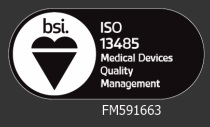This is a tough time to run an endoscopy service. You have duodenoscopes essentially considered unsafe by the FDA being reprocessed in recalled automatic endoscope reprocessors. What the heck is going on? And what can you do about it? While experts continue to debate how to properly reprocess duodenoscopes that have been linked to deadly superbug outbreaks across the country, the bad news regarding endoscope reprocessing continues to pour in.
The FDA has warned the 3 main duodenoscope manufacturers that they didn't report infections linked to the use of their scopes, or failed to ensure their scopes could be properly cleaned.
Recently the FDA recalled an estimated 2,800 automatic endoscope reprocessors made by Ivyland, Pa.- based Custom Ultrasonics. To top it off, the ECRI Institute, an independent healthcare research firm in suburban Philadelphia, has tabbed dirty endoscopes as the top technology hazard for 2016.
Patients who have undergone endoscopic retrograde cholangiopancreatography (ERCP) have become infected with carbapenem-resistant Enterobacteriaceae (CRE) that remained in improperly cleaned duodenoscopes. Highly publicized outbreaks have occurred at the UCLA Medical Center in Los Angeles, the University of Pittsburgh Medical Center, Advocate Lutheran General Hospital in Park Ridge, Ill., and Virginia Mason Medical Center in Seattle, Wash.
In November 2015, the widow of a 55-year-old man who was allegedly exposed to CRE during an ERCP performed at Carolinas Medical Center in Charlotte, N.C., filed a wrongful death lawsuit against duodenoscope manufacturer Olympus and Custom Ultrasonics.
In August 2015, the FDA sent warning letters to Olympus, Fujifilm and Pentax, informing the manufacturers that their duodenoscopes are misbranded. Then, in October, the FDA gave the companies a month to submit written plans for assessing how their scopes are being reprocessed and what steps can be taken to improve the process.
The FDA has recently ordered the immediate recall of nearly 3,000 AERs manufactured by Custom Ultrasonics. According to the recall, Custom Ultrasonics must validate the ability of its AERs to effectively clean and disinfect specific duodenoscopes. The company says in a statement that it is complying with the request, that its washer/disinfecter has not been linked to any transmissions of infection from endoscope to patient and that it stands behind the safety of its machines.

 RSS Feed
RSS Feed
